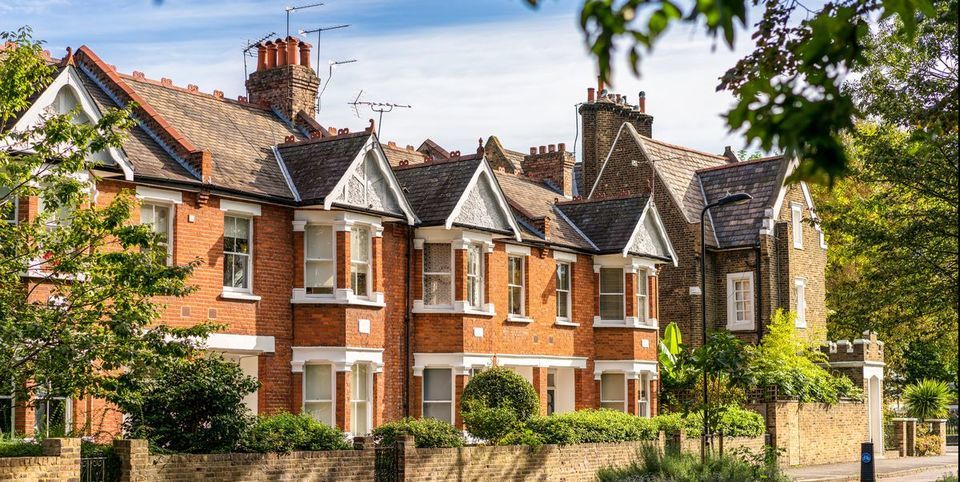The average UK home was worth £285,579 as the annual rate of house price growth slowed from 8.2% in October to 4.7% last month, Halifax bank said.
Halifax Mortgages director Kim Kinnaird, right, said: "While a market slowdown was expected, this month's fall reflects the worst of the market volatility over recent months.
"Some potential home moves have been paused as buyers feel increased pressure on affordability. And industry data continues to suggest many buyers and sellers are taking stock while the market continues to stabilise."
Ms Kinnaird said the market may now be going through a "process of normalisation". Prices are still more than £12,000 higher than this time last year and well above pre-Covid levels.
She said: "The trajectory of mortgage rates, the robustness of household finances in the face of the rising cost of living and how the economy - and more specifically the labour market - performs will be key in determining house prices changes in 2023."
Halifax said Wales and the Southwest - key Covid house price inflation hotspots - had recorded particularly sharp annual growth slowdowns.
It suggested the "race for space" and rural living market drivers were now receding.
The pace of annual property price inflation also slowed in London, which continues to lag behind other UK regions.
Alice Haine, of Bestinvest, said: "Britain's housing market is succumbing to the wider gloom affecting the economy following the dizzying price rises seen during the pandemic."
Emma Cox, of Shawbrook Bank, said: "The combined effects of double- digit inflation alongside the UK's slow march into recession is keeping many would-be first-time buyers away."
Matthew Thompson of estate agents Chestertons said: "Compared with November 2021, our branches experienced a 23% uplift in the number of properties sold.
"However, there has been a significant downward trend in market appraisals being carried out.
"It suggests that some sellers are still holding off due to economic uncertainty."
Iain McKenzie of the Guild of Property Professionals said: "The unprecedented demand in the last couple of years has meant estate agents have been scrambling to replenish stock."
He added: The cost-of-living crisis will be the determining factor to control house prices in the months ahead."
House Prices By Area Amid Biggest Fall In 14 Years
Mortgage rates leapt following the disastrous September mini-Budget which forced Liz Truss’s historically early exit from No 10, with the Bank of England’s base rate rises also pushing up borrowing costs, as household incomes are squeezed by levels of inflation not seen since the 1980s.
Property prices are still up by more than £12,000 comapared with last year, according to Kim Kinnaird, director of Halifax Mortgages. Prices are also sitting well above pre-pandemic levels, having gone up by £46,403 compared with March 2020.
“While a market slowdown was expected given the known economic headwinds – and following such extensive house price inflation over the last few years (19% growth since March 2020) – this month’s fall reflects the worst of the market volatility over recent months,” said Ms Kinnaird.
“The market may now be going through a process of normalisation.,” she said, adding that some potential home moves have been paused as buyers feel increased pressure over the affordability of properties and mortgages.
Unsurprisingly, the slowdown in house prices has been different across the UK, and has been felt most acutely in Wales and the southwest of England, according to Halifax.
Both were key hotspots of house price inflation during the coronavirus pandemic – which suggests that previous drivers of the market such as the “race for space” and heightened demand for rural living are now receding, Halifax said.
The pace of annual property price inflation also slowed in London, which continues to lag behind other UK regions and nations at a rate of 5.2% – however the average price in London remains well above the UK average at £549,160.
The largest growth, conversely was seen in England’s North East, where prices rose by 10.5% but remained the lowest in the UK, with an average of £173,587.
Here are the average house prices in your area and the annual increases witnessed in the 12 months to November, according to Halifax:
East Midlands – £244,429 – 9.5%
Eastern England – £339,683 – 7.3%
London – £549,160 – 5.2%
North East – £173,587 – 10.5%
North West – £229,218 – 9.4%
Northern Ireland – £185,097 – 9.1%
Scotland – £203,132 – 6.5%
South East – £397,562 – 7.6%
South West – £307,750 – 8.4%
Wales – £220,689 – 7.9%
West Midlands – £253,253 – 9.4%
Yorkshire and the Humber – £207,800 – 9.3%
Could house prices really fall 20% and how bad would that be? This is Money podcast
The mortgage crunch has stalled the pandemic property boom and sent house prices down, but could they fall 20%?
The risk of a severe house price downturn of that magnitude was flagged by Rightmove founder and property market veteran Harry Hill.
Hill’s CV includes setting up property giant Rightmove and selling estate agency group Countrywide for £1billion a year before the 2008 banking crisis.
Hill told the Mail on Sunday and This is Money: 'My view on the housing market is that it's going down in every direction. Transactions are going to go down. Prices are going to go down.’
He added that a bad recession would mean ‘we could see 20% price reductions’.

